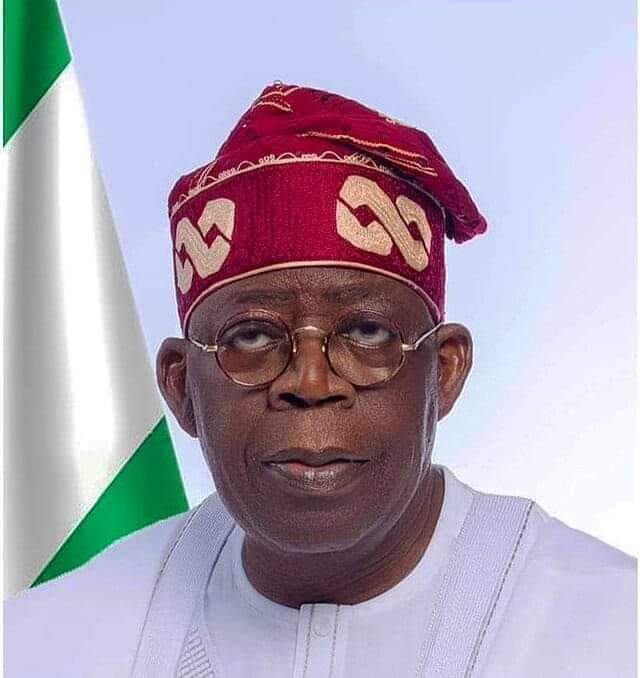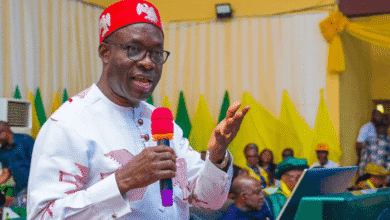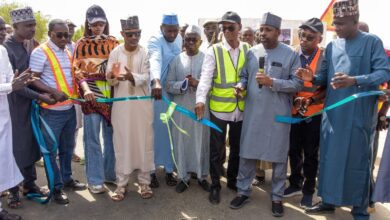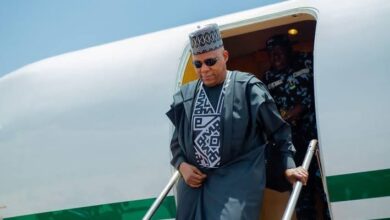One Year Anniversary: Tinubu’s Pledge Remains Unfulfilled -Atiku

By Sunday Etuka, Abuja
The Former Vice President of the Federal Republic of Nigeria, Alhaji Atiku Abubakar has asserted that 12 months on, the pledge made by President Bola Tinubu on May 29, 2023 to grow the economy and end misery remains unfulfilled.
Alhaji Atiku who posted this on his X handle on Wednesday, contended that despite the reforms introduced, “all the economic ills – joblessness, poverty, and misery – which defined the Buhari-led administration have exacerbated”.
Adding that the Africa’s leading economy has slipped to the 4th position lagging behind Algeria, Egypt, and South Africa. And that the citizens’ hopes have been dashed as Nigeria’s economic woes have multiplied.
While stating that the time is running out for the government, and it must act fast to save the economy, the Presidential Candidate of the Peoples Democratic Party (PDP) in the 2023 general election submitted six things that President Tinubu must do to change the narrative.
He said, “first, pause and reflect. It is important that the government understands what reforms must be undertaken and in what sequence. A framework is needed with clearly stated reform objectives and strategies.
“Second, undertake a comprehensive review of the 2024 budget within the new reform framework. The 2024 FGN Budget, the exact size of which remains a mystery, is not designed to address the structural defects of the Nigerian economy or the cost-of-living crisis. It will neither create prosperity nor promote opportunities for our young people to lead a productive life.
“The review must prioritise fiscal measures to deal with an unprecedented rise in commodity prices. Higher commodity prices have created more misery for the poor in our towns and villages and have pushed millions of people below the poverty line.
“One of such measures for immediate implementation will be to ease the existing restrictions on selected food imports. Third, undertake a comprehensive review of the Social Investment Programme (SIP) to mitigate some of the impact of these policies on the most vulnerable households.
“The SIP must go beyond Conditional Cash Transfers to include programmes that prioritize support to MSEs across all the economic sectors, as they offer the greatest opportunities for achieving inclusive growth.
“In addition, a holistic programme to support medium and large-scale enterprises to navigate the stormy seas in the aftermath of the withdrawal of subsidy on PMS is also needed.
“Fourth, Tinubu must be cautioned against any attempt to further pauperize the poor by introducing new taxes or increasing tax rates. We are aware of the behind-the-scenes attempts to increase VAT rate from 7.5% to 10%, re-introduce excise on telecommunication, and increase excise rates on a range of goods.
“It needs to be restated that we cannot tax our way out of this situation. Instead, Tinubu must see the need for expenditure rationalization and restraint – by having the budget more in sync with Nigeria’s fiscal reality, by improving efficiency in revenue utilization, improving procurement processes and trimming the size of government – and therefore reducing the cost of governance.
“Fifth, provide clarity on the fuel subsidy regime, including the fiscal commitments and benefits from the fuel subsidy reform and the impact of this on the Federation Accounts. It is curious that since April 2024, fuel queues had mounted at many filling stations across Nigeria, and the infamous ‘black market’ has sprouted in several states. How much PMS is being imported and distributed, and at what cost? What is the implicit subsidy? Sixth, tackle security headlong.
“President Tinubu, as a matter of priority, needs to rejig the nation’s security architecture as what is currently in place is not serving the needs of the people. The state of pervasive insecurity continues to adversely impact agricultural production and the value it brings to the economy, especially in the Northern parts of the country.
“Insecurity resulting from terrorism, banditry, kidnapping, and cattle rustling has compelled many crop farmers and pastoralists to abandon their lands and relocate to the neighbouring countries of Niger, Chad, and Cameroun.
“This has drastically caused a reduction in the production of food and skyrocketed prices of foodstuffs. Food scarcity in Nigeria is so dire that a report by Cadre Harmonize warns that between June and August this year, about 31.5 million Nigerians may face severe food shortages and scarcity I have always been a reform advocate.
“The Nigerian economy certainly requires a large dose of reform measures to accelerate its transformation after many years of lacklustre growth. The difference is that I understand the appropriate reforms to undertake and what steps to take per time to mitigate their negative impact.
“In my Policy Document, I had anticipated that the withdrawal of subsidy and unification of exchange rates could, in the absence of fundamental interventions, impact negatively on micro and small enterprises in the informal sector and on the medium to large enterprises in the formal sector.
“I had also anticipated that such policies could elevate the levels of vulnerability and deprivation of poor families, including the youth and adults with no incomes.
“With this understanding, I had designed robust mitigation interventions that will be implemented alongside our reforms. I was prepared for reform fallouts.
“Tinubu wasn’t. However, it is not too late for him to change course and do what is right for the good of our people and our nation”, he said.





